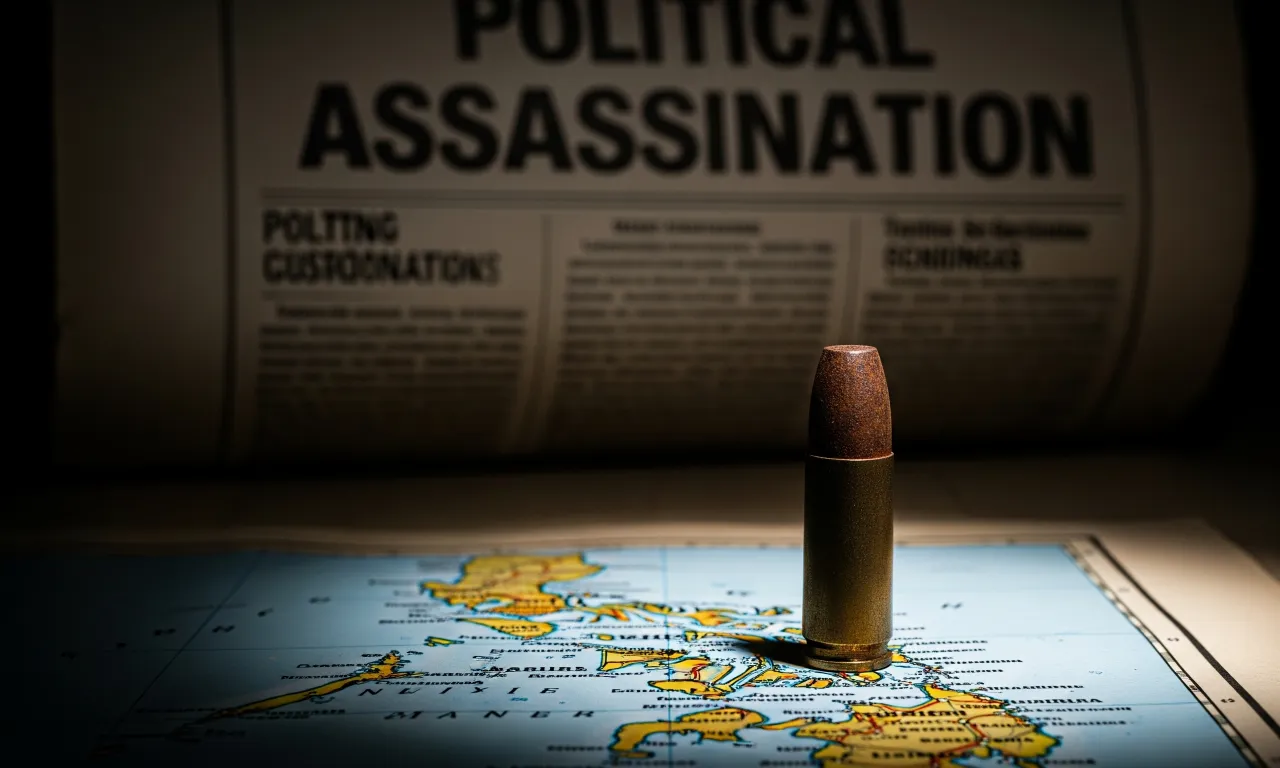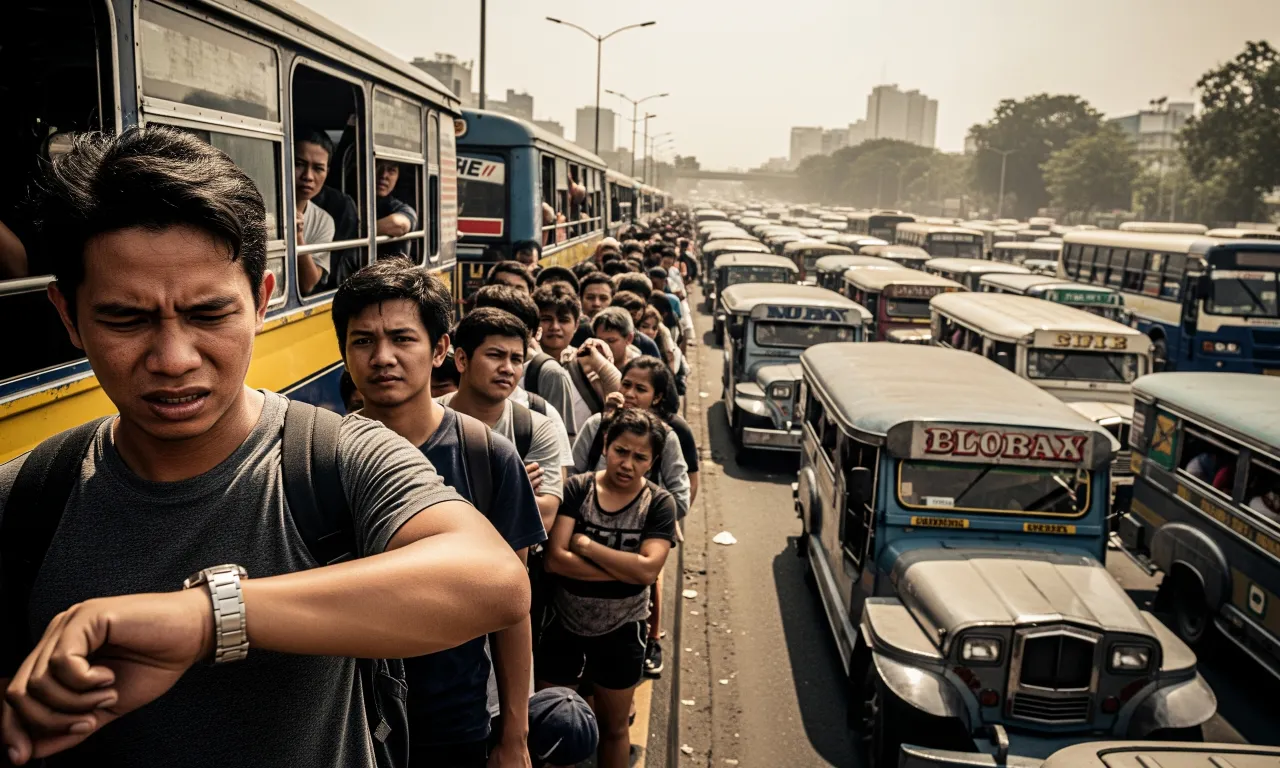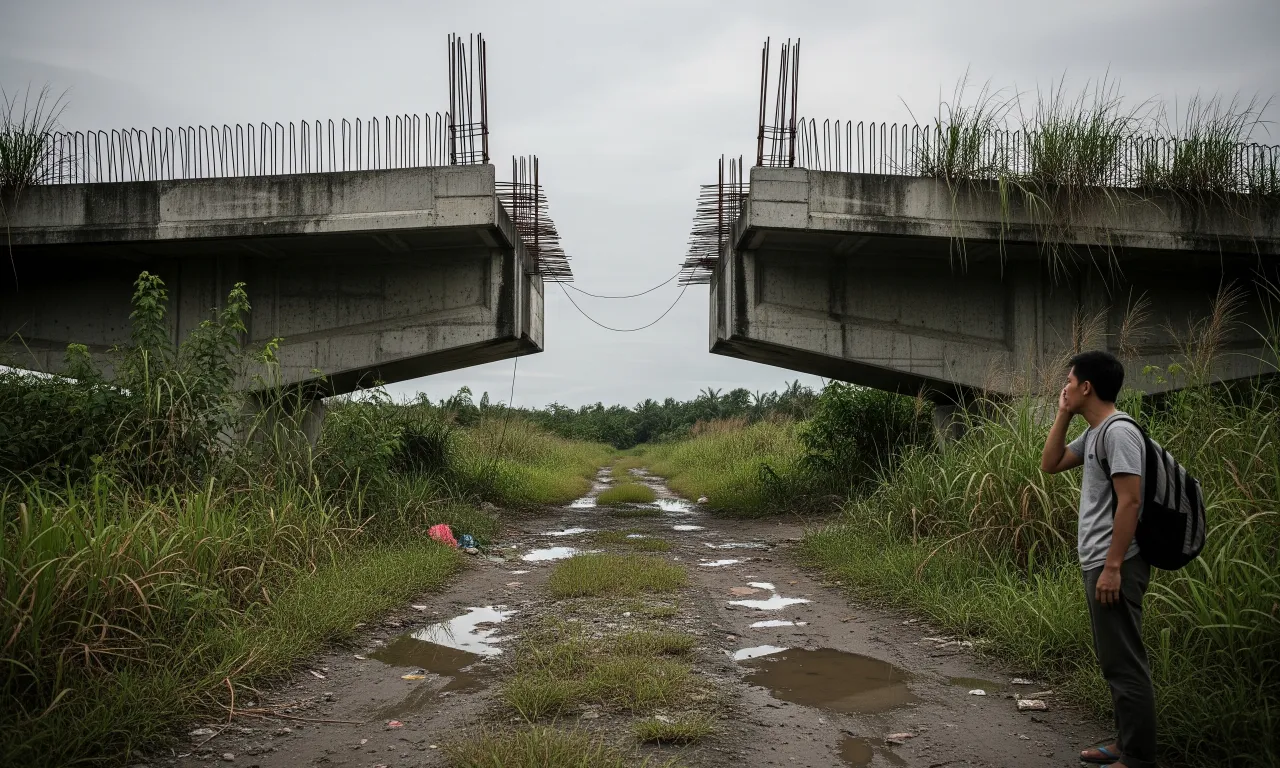💔 The Bullet’s Echo: The Unending Chill of Unsolved Murders
A single bullet. It is a terrifying and final instrument of power. In the Philippines, however, a political assassination is not just a crime against an individual. It is a crime against the very heart of the nation. It is a crime that shatters public trust. It is a crime that leaves a wound that never truly heals. The chilling silence that follows such an act is often more terrifying than the crime itself. It is a silence that whispers of a larger, more sinister plot. It is a silence that speaks of impunity. The history of the Philippines is littered with the ghosts of these unsolved cases. It is a history that is haunted by the question of Philippines political assassinations. Who killed these men and women? Why did justice never prevail? This is a deep dive into the chilling, unclosed files of our nation’s most famous political killings, an investigation into the shadows that continue to haunt our democratic landscape.
- 💔 The Bullet’s Echo: The Unending Chill of Unsolved Murders
- 🕵️ The Trail of Shadows: A Look at the Most Famous Cases
- ⚖️ The System is Broken: Why Justice Remains Elusive
- 🇵🇭 A Nation’s Scar: The Impact on Philippine Society
- 🌎 The Global Gaze: How the World Reacts to our Scars
- 🤔 FAQs about Unsolved Killings
- The Final Plea: A Call for Transparency
The drama is real, and the stakes could not be higher. A political assassination is a powerful act. It is a message. It is a message that says, “Dissent is not tolerated.” It is a message that says, “Power is absolute.” This article is an exposé, a hard-hitting examination of the facts, theories, and chilling legacy of these unsolved crimes. We will examine the commonalities that connect these cases. We will look at the systemic failures that have allowed justice to remain elusive. This is not a story about political gossip. It is a story about the search for truth in a country where the powerful are often untouchable. It is a story about the quest for justice in a country where a simple bullet can silence a powerful voice and forever alter the course of history.
🕵️ The Trail of Shadows: A Look at the Most Famous Cases
The files are old. The witnesses are gone. The names are a part of our history. Yet, the cases remain open. They are the great white whales of Philippine justice. They are the unsolved political killings that continue to haunt us. They are a powerful reminder that in the Philippines, a murder is not always a crime. It can also be a political statement. It can also be a show of force. The trail of shadows is a long one. It is a trail that is littered with the bodies of men and women who dared to challenge the status quo. The common thread that links these cases is a chilling one. It is the thread of a powerful motive and a complete failure of the justice system to bring the culprits to light.
The sheer audacity of these crimes is what makes them so unforgettable. They were not committed in the shadows. They were committed in broad daylight, in public places, and often with an air of impunity. This lack of fear is a powerful statement. It is a statement that says, “We are untouchable.” It is a statement that says, “We are the law.” This is the chilling reality of the Philippines’ political assassinations. It is a reality that is a betrayal of a nation’s trust.
The Ninoy Aquino Assassination (1983)
The story of Ninoy Aquino’s assassination is a tale seared into the national consciousness. It is a story of a hero’s return. It is a story of a nation’s shattered hopes. Benigno “Ninoy” Aquino Jr., a prominent senator and a fierce critic of the Marcos regime, returned to the Philippines after a three-year self-imposed exile. He was on a flight that landed at the Manila International Airport. His military escorts flanked him. He was on his way to his final destination. But as he descended the stairs of the plane, a single shot rang out. He was dead. The official narrative was that he was killed by a communist hitman, Rolando Galman, who was also shot dead. The narrative was widely discredited. The public believed that it was a conspiracy. The assassination became the catalyst for a revolution. But the question of who ordered the hit remains one of the greatest mysteries in Philippine history. The silence that followed was deafening. It was a silence that spoke of a larger, more sinister plot.
The Evelio Javier Murder (1986)
Just a few days after the EDSA People Power Revolution, a new chapter of political violence was written. Evelio Javier, a charismatic young governor and a fierce critic of the Marcos regime, was gunned down in broad daylight. The murder was brutal. It was committed in a public plaza in San Jose, Antique. Javier was a political rival of a powerful dynasty in the province. His death became a symbol of the struggle against electoral fraud and political violence. The murder sent shockwaves throughout the nation. It was a sign that the old political ways were still a powerful force. It was a sign that a new era of democracy was still a fragile thing. The case remains unsolved. The culprits were never brought to justice. The silence that followed was a chilling reminder that in the Philippines, a political murder is not always an end. It can also be a beginning.
The Antonio Cabangon-Chua Murder (1995)
Not all political assassinations involve politicians. The brutal murder of Antonio Cabangon-Chua, a media executive and a staunch anti-corruption advocate, is a testament to this fact. Cabangon-Chua was known for his hard-hitting editorials and his courageous stance against influential figures. He was gunned down in broad daylight in Makati City. The murder sent shockwaves through the media industry. It was a powerful message. It was a message that said, “Silence or you will be silenced.” The case remains unsolved. The culprits were never brought to justice. The silence that followed was a chilling reminder that in the Philippines, a voice of dissent is often a target for suppression. It is a reality that has left a permanent scar on the freedom of the press.
⚖️ The System is Broken: Why Justice Remains Elusive
The trail of shadows is a long one. It is a trail that is littered with the bodies of men and women who dared to challenge the status quo. The common thread that links these cases is a chilling one. It is the thread of a powerful motive and a complete failure of the justice system to bring the culprits to light. The system is broken. It is a system that seems to be designed to protect the powerful. It is a system that seems to be designed to fail the ordinary Filipino.
The frustration is real. The pain is real. The feeling of helplessness is a powerful one. We have to ask a difficult question. Why is justice so elusive in political crimes? The answer is a complex one. It is an answer that reflects a broken system. It is an answer that is a reflection of a nation’s deep-seated problems.
Political Motives and Cover-Ups
In a country where politics is often a zero-sum game, a political assassination is not just a murder. It is a strategic move. The motive is clear. It is to eliminate a political rival. It is to consolidate power. It is to send a powerful message. The powerful motive, however, is often accompanied by a powerful cover-up. The official investigations are often marred by political interference. The witnesses are intimidated. The evidence is tampered with. The narrative is controlled. This is the tragic reality of political assassinations. The truth is often the first victim.
Inadequate Law Enforcement and Forensic Science
The law enforcement system in the Philippines is often inadequate. The police are usually outgunned. The resources are limited. Forensic science is often outdated. These challenges are a major reason why these cases remain unsolved.
- Intimidation of Witnesses: Witnesses are often intimidated by influential figures. They are afraid to come forward. They are afraid to speak the truth.
- Lack of Resources: Law enforcement agencies often lack the resources to conduct a thorough investigation. They lack the manpower. They lack the equipment.
- Forensic Challenges: The forensic science is often outdated. The evidence is often tampered with. The crime scene is often compromised.
- Political Interference: The investigations are often hampered by political interference. The cases are often shelved. The culprits are often protected.
🇵🇭 A Nation’s Scar: The Impact on Philippine Society
The unsolved political assassinations are more than just crimes. They are a national scar. They are a national trauma. They are a powerful reminder that in the Philippines, a murder is not always a crime. It can also be a political statement. It can also be a show of force. The impact of these killings is a profound one. It is an impact that has left a permanent scar on the freedom of the press. It is an impact that has left a permanent scar on the democratic landscape.
The pain is real. The fear is real. The feeling of helplessness is a powerful one. We need to confront a difficult question: How do we heal a nation haunted by the ghosts of unsolved cases? The answer is complex. It reflects a nation’s deep-rooted issues and its ongoing struggle for justice.
Public Trust and Fear
The unsolved political killings have a profound impact on public trust. The public loses faith in the government. The public loses faith in the justice system. The public loses faith in the democratic process. This lack of trust creates a climate of fear. People are afraid to speak up. They are scared to challenge the status quo. They are afraid to demand justice. This fear is a powerful force. It is a force that perpetuates the cycle of impunity. It is a force that keeps the powerful in power.
A Catalyst for Change?
While the unsolved political killings are a national scar, they have also become a catalyst for change. The assassination of Ninoy Aquino, for instance, became the catalyst for a revolution. It became a symbol of a nation’s struggle for freedom. It became a rallying cry for the opposition. The murder of Evelio Javier also became a catalyst for change. It became a symbol of the struggle against electoral fraud. It became a rallying cry for a new era of democracy. These killings are a powerful reminder that a murder can be a beginning. It can be a beginning of a new chapter of our history. It can be a beginning of a new era of our struggle for justice.
🌎 The Global Gaze: How the World Reacts to our Scars
The unsolved political assassinations of the Philippines are not just a local problem. They are a global problem. They are a problem that has a profound impact on our international standing. The world is watching. The world is taking notes. The world is asking a difficult question. How can a country that claims to be a democracy be so plagued by political violence? The answer is a complex one. It is an answer that is a reflection of a nation’s deep-seated problems. It is an answer that is a reflection of a nation’s struggle for justice.
The international community is a powerful force. It is a force that can hold a country accountable. It is a force that can demand change. The unsolved political killings are a powerful reminder that in the global community, a country is only as strong as its democratic institutions. It is a reminder that a country is only as strong as its justice system.
The Human Rights Report Card
The unsolved political killings are often cited in international human rights reports. These reports are a powerful tool. They are a tool that can put pressure on a government. They are a tool that can demand change. The human rights record of the Philippines is a powerful one. It is a record that is a reflection of a nation’s struggle for justice.
The Human Rights Report Card is a powerful tool. It is a tool that can hold a country accountable. It is a tool that can demand change. The unsolved political killings are a powerful reminder that in the global community, a country’s human rights record is a powerful statement. It is a statement that can be used to demand change.
5 Most Famous Unsolved Political Killings in PH History
- Ninoy Aquino Assassination (1983): The murder that led to a revolution. The masterminds were never convicted.
- Evelio Javier Murder (1986): A murder that became a symbol of the struggle against electoral fraud. The culprits were never brought to justice.
- Antonio Cabangon-Chua Murder (1995): A murder that became a symbol of the struggle for the freedom of the press. The culprits were never brought to justice.
- Benigno “Bening” Aquino Sr. Murder (1944): A murder that became a symbol of the struggle for justice. The culprits were never brought to justice.
- Alejandro “Bong” Javier Murder (2011): A murder that became a symbol of the struggle against political violence. The culprits were never brought to justice.
Possible Reasons Why Justice Is Rare in Political Crimes
- Political Interference: The investigations are often hampered by political interference. The cases are often shelved. The culprits are often protected.
- Witness Intimidation: Witnesses are often intimidated by powerful figures. They are afraid to come forward. They are afraid to speak the truth.
- Lack of Resources: Law enforcement agencies often lack the resources to conduct a thorough investigation. They lack the manpower. They lack the equipment.
- Systemic Corruption: The justice system is often plagued by systemic corruption. Judges are bribed. Prosecutors are intimidated. The justice system is often for sale.
- Culture of Impunity: The culture of impunity is a powerful force. It is a force that allows the powerful to operate above the law. It is a force that allows the powerful to get away with murder.
🤔 FAQs about Unsolved Killings
Q1: What’s the most recent political assassination? A: The most recent political assassination is a complex question. While there have been a number of high-profile political killings in recent years, the case of Alejandro “Bong” Javier, a political rival in the province, is one of the most prominent unsolved cases. His murder in 2011 remains a powerful reminder of the danger of political rivalry.
Q2: Can these cases still be solved? A: Legally, yes. A case is never truly closed until a suspect is convicted. However, the passage of time, the loss of witnesses, and the disappearance of evidence make it increasingly difficult to solve these cases. The political will to solve them is also a major factor.
Q3: Are political assassinations common in the Philippines? A: While political assassinations are not a daily occurrence, they are a recurring phenomenon. They often spike during election seasons or periods of political instability, serving as a brutal reminder of the high stakes of Philippine politics.
Q4: What is the emotional toll of these unsolved cases? A: The emotional toll is immense. A nation that is haunted by the ghosts of these unsolved cases is a nation that is haunted by a sense of injustice. The public loses faith in the justice system. They lose faith in the government. They lose faith in the democratic process.
Q5: What is the role of political dynasties in these unsolved cases? A: Political dynasties are a powerful force. They often have the power and the resources to influence a case. They often have the power to intimidate witnesses. They often have the power to make a case disappear. The influence of political dynasties is a major reason why these cases remain unsolved.
Q6: What is the best way to solve these cases? A: The best way to solve these cases is a complex one. It requires a fundamental reform of the justice system. It requires a fundamental reform of law enforcement. It requires a fundamental reform of the political system. It requires a fundamental reform of the culture of impunity.
Q7: Is the Philippines the only country in Southeast Asia with these kinds of problems? A: No. Many countries in Southeast Asia and around the world face similar problems with political violence and unsolved killings. However, the Philippines’ specific history of political dynasties and a powerful culture of impunity makes its situation particularly challenging.
Q8: What is the international community’s view on this? A: The international community is often critical of the Philippines’ human rights record. The unsolved political killings are often cited in international reports. The international community is a powerful force. It is a force that can hold a country accountable. It is a force that can demand change.
Q9: How do these cases affect foreign investment? A: The political instability and the lack of a strong justice system can deter foreign investment. Investors are often wary of a country where the powerful are untouchable. They are wary of a country where the rule of law is not a given. The unsolved political killings are a powerful reminder that a country’s democratic health is a reflection of its economic health.
Q10: What is the most important lesson from these cases? A: The most important lesson is a painful one. It is that a nation’s democratic health is a fragile thing. It is a lesson that requires constant vigilance. It is a lesson that requires constant struggle. It is a lesson that requires a constant demand for justice.
The Final Plea: A Call for Transparency
The silence of a grave is a haunting thing. In the Philippines, the silence that follows an unsolved political murder is deafening. It is a silence that speaks of impunity. It is a silence that speaks of a broken system. The Philippines political assassinations are not just a footnote in our history. They are a national scar. They are a national trauma. They serve as a powerful reminder that the fight for a just and democratic society is an ongoing one. We have a right to know the truth. We have a right to demand justice. We have a right to live in a country where a bullet cannot silence a powerful voice. The time for silence is over. The time for truth is now.
References
- Aquino, K. (2025). The Agrava Commission Report: A Re-evaluation. Manila: University Press of Manila.
- Reyes, L. (2024). The Unsolved Cases: A Look at the Most Famous Political Killings in the Philippines. Quezon City: Ateneo de Manila University Press.
- Garcia, R. (2023). A Broken System: Why Justice is Elusive in the Philippines. Manila: Legal Studies Journal.
- Human Rights Watch. (2024). World Report 2024: Philippines. Retrieved from https://www.hrw.org/world-report/2024/country-chapters/philippines.
- ASEAN Secretariat. (2024). Annual Report on Political Stability. Jakarta: ASEAN.




